Once Hyman told the college counselor about his situation, they recommended that he apply for the Capital Community College Bridge to Morehouse College program.
The community college established the partnership with Morehouse College, a historically Black college in Atlanta. The goal is for male students enrolled in the bridge program to be able to smoothly transition to Morehouse once they graduate with their associate degree with a minimum GPA of 2.7.
The agreement is the only one between the HBCU and a community college in New England, according to Capital Community College. The program begins this fall semester and is for full-time students.
Morehouse College is known for its successful Black graduates, including the Rev. Dr. Martin Luther King Jr., Sen. Raphael Warnock, Spike Lee and Samuel L. Jackson. These are the historic footsteps that Hyman said he is looking to follow this fall as a part of Capital’s cohort of Black male students enrolled in the Bridge program.
:quality(70)/cloudfront-us-east-1.images.arcpublishing.com/tronc/24DMCBIFWLEXZJXC6XKHBRVL2Y.jpg)
Campus Chief Executive Officer Dr. G. Duncan Harris said there are skills the students will acquire on their road to becoming scholars.
“Whether that’s doing research, whether that’s the importance of being able to think critically and listen critically. The writing ability or … leadership, the concepts of your role in your community,” Harris said. “There’s a part of this program that is really designed to provide participants with all of those skills that they’ll need so that when they go to Morehouse two years from now, they will be prepared to continue to excel at that institution.”
Harris said the program also is intended to shift the narrative around Black men within the community.
“Unfortunately, there are a lot of negative things going on in our community right now, spikes in violence [and] other things that take away from the strength of our community,” he said.
“This [program] is something that people have been very interested in and very, very proud of. And I think that’s what they represent, too,” Harris said. “When I look at CJ, there’s nothing that makes me more proud, and four years from now, [when] he’s walking across the stage at Morehouse with his maroon and white on, he also probably has a Capital T-shirt underneath. That’s a part of his journey.”
Harris also noted that “there’s a lot of talk about equity,” and he thinks “a lot of times [for] Black men in particular, there [are] these opportunity gaps, where sometimes they don’t always have the same opportunities as others, so here’s an amazing opportunity specifically designed for them to make sure that they can achieve [in] their future, which should be bright. They are entitled to that.”
Bridge program coordinator Ashley Coleman said an important element of the program is providing exposure for the students about how impactful HBCUs have been in helping the Black community as a whole.
“I realized being from the Northeast having gone to an HBCU that there are still quite a few people in general, but even Black people who are not aware of HBCUs for their presence, their purpose, the profound impact they’ve had on the Black community,” Coleman said.
:quality(70)/cloudfront-us-east-1.images.arcpublishing.com/tronc/IY5W5XTGDM74OJJEJL22IHDPNA.jpg)
“So if CJ and all of the young men move up this cohort … if they are passing on this knowledge of this experience and the impact it’s had on them, if it does nothing but increase the awareness that these institutions are here, why they’re here, what they’ve done, then I feel as though my job is done. So I’m really excited for them,” Coleman said.
Some of the additional supports the male members in the cohort have access to include guest lectures and alumni from Morehouse and other HBCUs, education on the history of HBCUs, a college visit to Morehouse College in Georgia, and one-on-one academic/life coaching, monthly group meetings, according to CCC leaders.
“We intend to bring the cohort down to Atlanta so that they can tour this campus, and now I’ve seen the college that I intend to go to, but just to be in the present,” Coleman said. “We’ve shared some clips of videos of what some of the bands and the drumline looks like [at an] HBCU. … The purpose of you being there is to fuel your education, but it’s also fun at the same time, [as] you enjoy some of the same foods and music. There’s nothing like that.
Bridge coordinator Brittney Cooper said that, for the young men traveling to visit Morehouse, it will be a life-changing experience.
“I think being in that space is going to be a game changer for them. To see and to know that there are people who look like them who are going on to be doctors, astronauts, engineers and business owners … that’s what our young need … to really just sit in their Blackness and be OK with that,” Cooper said.
Hyman said his advice for other young men who may be interested in applying for the Bridge to Morehouse program in the future is to “just explore every option that you have.
“There’s a lot of opportunities that you might skip over that you don’t ask someone to just to do some research about it,” he said “If I had never done any research about this program, and I just paid the 30K that [Western] wanted me to pay, I wouldn’t be able to have the opportunity to explore more of the world. I’ve never been to Georgia before so it’s going to be a new experience.”
For more information about the Bridge to Morehouse program, email [email protected].
